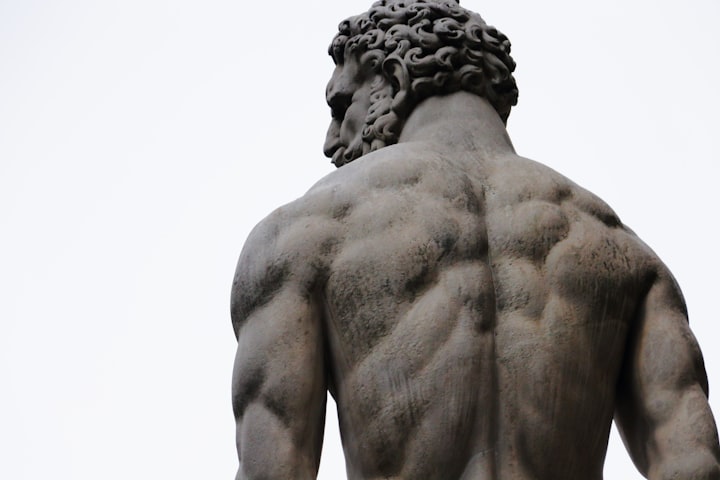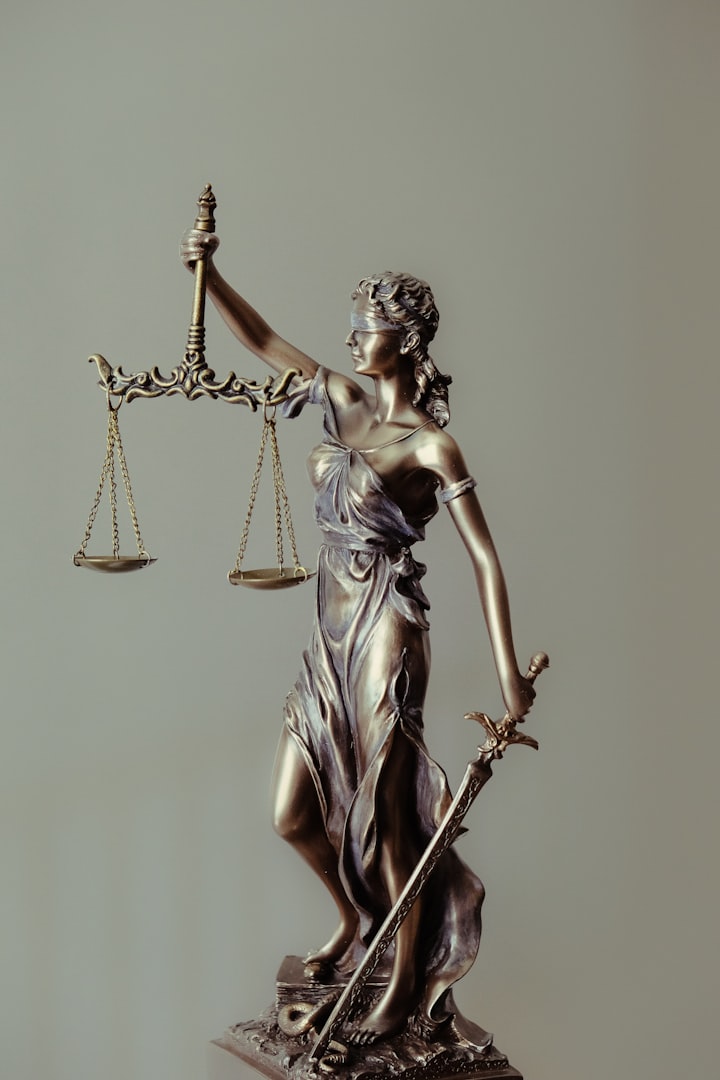What Can Be Done To Resist The Abuse Of Political Power?
An entry into the 2022 Hubert Butler Essay Prize.

This essay was written and entered into the 2022 Hubert Butler Essay Prize. Due to competition T&C, it could not be published until now but was written back in May 2022. Developments since then obviously could not have been foreseen.
My Dad used to quote to me as a teenager just beginning to form their political beliefs "Politics is the art of the possible". Surprisingly, unlike most quotes, the source is undisputed, uttered by the first Chancellor of Germany, Otto von Bismarck. It's fitting that a nineteenth century German (technically Prussian) statement should be brought up, when so much of Bismark's career and machinations foreshadowed much of what we're seeing now. His campaign of "Kulturkampf" might as well be a precursor to the much touted "Culture War" by conservatives. He plagiarised the socialists he hated to win favour with the Working Class, like many populists have done and are doing. And his half-hearted discomfort at the colonisation of Africa echoes in the present where the wealthiest nations weep crocodile tears for the continents they continue to plunder. If Bismark were alive today, perhaps he would remind us that his infamous words are only partially remembered; "Politics is the art of the possible, the attainable, the art of the next best". Which begs the question; can Bismark be said to know what is best? Can his global successors?
What is possible has drastically become fuzzy, hasn't it? If you said, with the fall of Berlin Wall, that another Russian figurehead with a cult of personality would threaten Europe once again, you would have been laughed at amidst the cheers of reunited families. If you said, with the inauguration of the United States' first black president, that after his second term they would be plunged into an era of unrest, conspiracy theories, and an attempted coup by their own President, they would drown out your blasphemy with "USA! USA! USA!" And if you said, during the boom of the Irish Celtic Tigers, that one man would drag the country through years of austerity, demonise the poor, and become Prime Minister twice without being elected, you'd be told to shut up and buy a house. How is it possible we can see immoralities before us, feel oppression weight down upon us, and know we inherit generations of exploitation, yet our senses are denied so convincingly that we can't help but doubt ourselves?
Narrative.
All countries, to one degree or another, are mythologised, as ethereal as Narnia or Hogwarts. All people are made of no more organs and no fewer lies than gods and superheroes. What unites people, throughout humanity, has been a story we tell ourselves. There's even a term in psychology for this phenomenon; Narrative Identity. The issue arises when one's story extends beyond psyche borders, when a societal story is no longer democratically told but enforced upon all with preassigned roles of villains and background characters. Political power is the ultimate position for a storyteller; not only does it allow for the creation of a national narrative (and Arc, if you will), but it presumes the ability to invalidate individual stories as they see fit.
The projection, on the part of the abuser, serves not only to incorporate individuals into their narrative as opposition but also to deny our own narratives. You're not an innocent victim of war. You're an enemy insurgent! You're not trapped in a refugee camp. You're a swarming mass coming to devalue our culture! You're not a child wishing to be respected. You're a pawn in a plot to destroy a generation! As you can see, this devolves into conspiratorial plots and dehumanised enemies. The irony is much of this projection is exactly that; projection. Putin has more in common with supposed Nazis he invaded Ukraine to defeat than he does with everyday Russians. Boris and Trumps are master manipulators yet cry falsehoods whenever they're called out. Varadkar for years used stories of welfare cheats to hide his own dubious dealings. Bolsonaro's talks of US imperialism in South American always seem to stop just before he touches on the thousands of indigenous people he's displaced himself. And Xi Jinping's rhetoric of undoing centuries of nations tampering in Chinese affairs rings a little hollow when they decide who is and isn't a sovereign country. It's disappointingly childish, when you strip back the veneer of statesmanship, that all these supposed strong men's only argument is "I'm rubber, you're glue; whatever you say bounces off me and sticks to you!"
Make no mistake, often apparent acceptance under the guise of reluctant defeat of the mighty state is also a political weapon. "Interest Convergence", as described by civil rights activist Derrick Albert Bell, is where calls for equality are allowed to an extent when they serve the interests of the political class; when they can be incorporated into the Arc. It's how an anti-Capitalist and Reparations proponent like Martin Luther King can be cleaned up into an American hero in support of the status quo. It's how the Irish State, founded by Unions, Socialists, and Suffragettes, can celebrate the Easter Rising yet never elect a single government further left than Fianna Fáil. It is how asylum seekers from war torn countries, usually disdainfully discarded as a geopolitical nuisance, can suddenly be welcomed with open arms if it means we get to look like the good guys.
An added benefit of this is that to criticise the weaponisation of interests can be mistaken as criticism of those interests. To talk about racism can be misconstrued, especially by the racists who benefit from the lack of discussion, as racist itself. The same goes for sexism, xenophobia, homophobia, transphobia, and such. Even those who are being weaponised, victims of political performance, may rebut valid criticisms they agree with for fear that they jeopardise their acceptance by the status quo. The powerful have transformed their opponents into their proponents. Some of the biggest transphobes currently are women and homosexuals who believe it's better to be with the zealous than their own ideological kin. The Irish, the Polish, the Italians, the Jews, and the Eastern Europeans have forgotten they weren't considered White until they became useful against Asian and African migrants, people looking for a better life like they were.
Acceptance by the powerful is the submission of the powerless.
So… what can we do?
If political power does derive from the use and enforcement of narrative identity, then, running with the analogy, one can argue that for a narrative to be accepted, there needs to be an public willing to accept it. In "From Dictatorship to Democracy", Gene Sharp notes that any successful rebellion against the abuse of political power must do two things; serve as an alternative before and after the regime, and withhold consent from the regime. Sharp elaborated that while dangerous, the use of public declarations through any form of communication available served not only as a way of creating a counter-narrative but also was capable of reaching the silent majority. A silent majority who were unaware another way was even possible. To show an alternative is to show the status quo as manufactured by subjugation, not merit. If another way is even possible, let alone better, it calls into question the validity of the Arc. Resistance, even when failed, is power.
Take the example of Civil Disobedience. In recent years, through the narrative of the status quo, it has become indistinguishable from Civil Unrest in the mind of the public, yet the two are greatly at odds. Civil Unrest aims to break laws to revolt against those in power (when cooperatively coordinated, otherwise it's just a fun time smashing things). Civil Disobedience, however, is the intentional refusal to cooperate in the enforcement of the state upon yourself, rescinding your consent and contribution to the powerful. For example, I am supposed to wait for the green man at traffic lights before crossing the road when there is traffic. Ultimately, I am relied upon to comply with these instructions. If I don't, I have taken a fraction of the state's power. If I do this alone, I'm just some guy with a death wish. If every single person in the country did this, the state not only loses all power over governing traffic, but would be forced to compromise with the public.
The principle of Civil Disobedience can be summed up as the radical acceptance of the Arc forced upon you. If you wish to criminalise my existence, I accept that, but I will not aid you. If you wish for your laws to be enforced, then you do the heavy lifting. History is full of examples. Egyptian Nationalists during their nineteen-nineteen revolution practised a form of selective Civil Disobedience where they followed pre-existing Egyptian laws but not the new colonial laws. Many countries within the Soviet Union went so far as to begin practising forms of government and commerce at odds with Stalinism. In ideal cases, you don't even need to break any laws, like during the Irish Land War where Charles Boycott, an absentee landlord representative, was ostracised by all residents of county Mayo. This tactic worked so well it was adopted by the whole country and is where we get the term "Boycott" (which is hilariously cruel to one guy just doing his job and I love it!)
Civil Disobedience serves three functions in combating political abuse. First, it challenges the performance, the narrative of the oppressor. If the political power that insists on laws being enforced wishes for such, then it needs to do so without the compliance of those it criminalises. Much like a worker strike, the absence of labour reveals the true cost. As cynical as it sounds, many laws are only in place so long as those in power aren't the ones paying for them. Sit-ins, lock-ins, blocking traffic, and other forms of protest are ignored until it starts costing more than it's worth. This isn't just in monetary terms. Morale can be expended quickly amongst the police, the army, or the thuggish elements of the politically corrupt when they start being judged for their part. Is any political act justifiable to you when the price gets too much? Can you really be sincere in your beliefs if you're not footing the bill?
Second, the act of non-compliance is an act of democracy; as equal as its absence. John Stuart Mill put it thusly; "Let not anyone pacify his conscience by the delusion that he can do no harm if he takes no part". This is often paraphrased as "For Evil to triumph, Good need only do nothing". At best, the silence whenever you come across the unforgivable and the apathetic is your declaration that you see yourself standing to gain from another's subjugation. At worst, you are betraying every principle you passively held in the name of a misguided sense of enlightened centralism. You have done nothing less than join a tragically long list who think compromise is admirable in of itself. To compromise on that which should never be forfeited is foolish and cowardice. There is a difference between compromising on the wording of legislation or a budget, and compromising on whether rights are protected. Something can be so reprehensibly repugnant that even shades lighter are still horrific. A compromise with fascism is still fascism. The willingness to work with abuse is a vote for that abuse. The validity of power comes from your willingness to not stand against it.
And finally, it cements your own narrative against the Arc. While this is just as mythologising, it defends yourself against gaslighting; questioning your identity. It is convenient for the powerful to have as many go along with them as possible, whether they are truthful of not. Claims of being under siege or the incessant need to become isolationist will always be made, regardless of their validity. We've seen it with the Iraq War, the Red Scare, fears of Western Invasions by China and North Korea. The concerns come from a place of self-preservation, but in order to continue using these claims, especially to mask your own nefarious deeds, you can't let a silly little thing like the truth stand in the way. Therefore, what is to be done with those who will call you out (when more permanent options are too much)? Weaponise their beliefs against them. Fold them into your Arc that traitors and the illogical are everywhere, forcing them to explain themselves, sowing doubt into their own message. The point isn't that they care; the point is that you care. Busy you with Imposter Syndrome, with fears of not speaking well enough for the voiceless. You need a strong foundation to stand on, lest you sink into depths of uncertainty.
This is where your narrative identity comes into play, reassuring you no matter how you're framed in the media or by the state, you are in the right. In "Man's Search for Meaning", psychiatrist and Holocaust survivor Viktor Frankl talked about how many of those who survived the concentration camps were not those with the most optimism, strength, nor intelligence, rather those who told themselves a story; a future worth living for. For him, fittingly, what he lived for was to rewrite said book after an early draft was taken from him and burned upon entry into the camp. As he put it, "Any attempt to restore a man's inner strength in the camp had first to succeed in showing him some future goal".
And that is the point. Why struggle in the face of the apathetic, the absolute, the systemic corruption? You. You are the point. They may pretend you don't matter, that you are so miniscule in the grand scope of history that you should be grateful to be alive, but this is all fearful self-hatred on their part because they know they need you. The need you to not challenge them, to buy into their Arc, that we are all in the background of their story if we're lucky or antagonists if otherwise. Democracy is a story we share with others, expecting it to be upheld, especially by those we trust to do what is right, not what they say is possible.
We must be willing to compromise, yes, but it is fortuitous only for those who care not for others when we buy into the falsehood that agreeableness is the highest virtue. Stoicism, to be unwavering in your values, is the best insurance anyone will ever have that they'll be able to abstain from encouraging the kind of abuse we're seeing in the world. If we hold on to our values, our stories, perhaps one day we can have those trusted within grasp of unlimited power willingly give it up, uninterested.
But wait! Aren't ideologues how we got here in the first place? People who stubbornly refuse to listen? How can we combat against corruption and abuse if we run the risk of simply replacing it? On the surface, it would appear impossible, but that's where our friend Bismark returns with a reminder. "Politics is the art of the possible, the attainable, the art of the next best". We're not interested in the best. I am not asking you to achieve your vision by any means. Sharp stressed the importance that Civil Disobedience be non-violent. Frankl clarified that a person's "Why" for living shouldn't ignore the very real situation they find themselves in. And Bell's work is built upon the idea that we should never lose the principle of our goals, even when the state allows us to succeed. I am asking you to centre yourself with a story that you need to accept may never come true, but you'll never waver from. Because for every story of a dictator, a conman, or a cynic, there's a story of someone who gave up.
Bismark, hailed a hero of Prussia and its culture, disowned his heritage and countrymen for power. He understood the importance of welfare, but never the humanity behind it. And even his deeply held mistrust of Catholics did a one-eighty when he realised they made a nice support base for this political career. Bismark, like all who abuse power, had nothing without it. That is the difference. Those who have nothing to do with the power they're given, no vision, no value, no narrative, are the only ones who wish to stay indefinitely, hoping they'll find something if they wait long enough. The only way to beat those who decide the possible is to never surrender what you're dedicated to making possible.
Even if it's only a story.
About the Creator
Conor Matthews
Writer. Opinions are my own. https://ko-fi.com/conormatthews






Comments
There are no comments for this story
Be the first to respond and start the conversation.